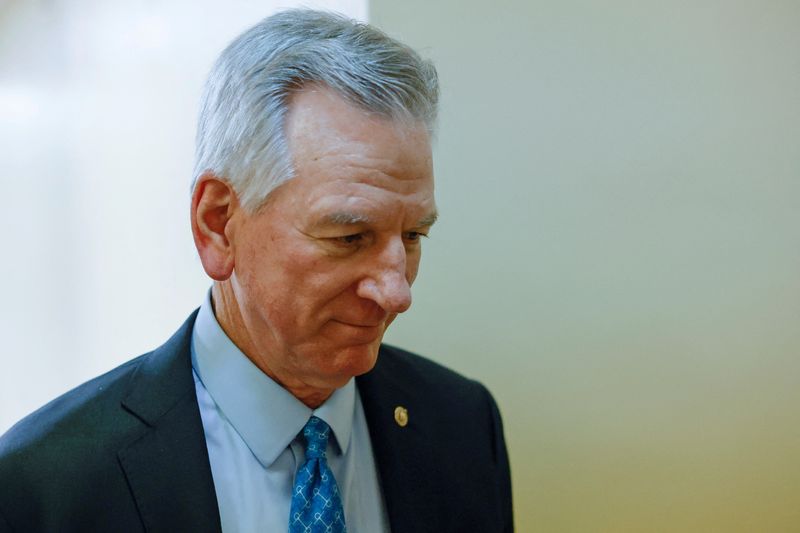By Patricia Zengerle
WASHINGTON (Reuters) - U.S. Republican Senator Tommy Tuberville prevented the approval of hundreds of military nominations on Thursday, continuing his blockade of promotions in protest over the Defense Department's abortion policy.
Democratic Senator Tim Kaine read the names of 364 military officers who have been nominated for promotion, asking that they be approved. Tuberville objected to all of them.
Tuberville has been blocking quick confirmation of high-level military promotions since February to protest the Pentagon's policy of covering travel costs for abortions for service members and their dependents.
Military leaders say the logjam has harmed national security by leaving key positions empty and making it more difficult to recruit and retain troops.
Under Senate rules, one lawmaker can hold up nominations even if the other 99 all want them to move quickly. Tuberville's blockade has faced opposition from some Republicans as well as Democrats, who say he should make his point on a policy matter by targeting nominees involved with policy, not punishing military members who have earned promotion.
"These individuals are in a limbo that is very painful to them," Kaine said.
Tuberville said he is merely using the only means available to a Republican in the Democratic-controlled State.
"The only power that a senator in the minority has is to put a nomination on hold," Tuberville said.
Tuberville's blockade ended decades in which the Senate has routinely approved large numbers of military promotions at once. He has argued that the Senate could sidestep his action by approving one promotion at a time, a process that would take months.

The Senate's Democratic leaders are working on a rules change that would get around Tuberville's blockade.
Several states have limited abortion access since the Supreme Court last year overturned the Roe v. Wade ruling recognizing a constitutional right to abortion. The Pentagon funds travel so female service members are not denied access to abortion services because they cannot choose where they are stationed.